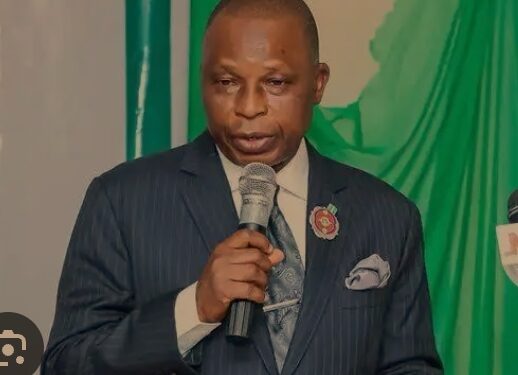By Tambaya Julius, Abuja
Corruption has long been a menace in Nigeria, threatening the nation’s progress and stability. In a bid to address this persistent issue, the Centre for Media, Policy, and Accountability (CMPA) organised a one-day national policy dialogue titled “Anti-Corruption Performance in Nigeria: 1999-2024 – Successes and Challenges”. Hosted at the ICPC office in Abuja, the event brought together key players in governance, civil society, and anti-corruption agencies to chart a course for a corruption-free Nigeria.
Speaking at the Event the Attorney General of the Federation and Minister of Justice, Mr Lateef Fagbemi (SAN), acknowledged the collaborative efforts of various stakeholders. He extended heartfelt thanks for the opportunity to address the occasion, recognising it as a platform to unite forces in the fight against corruption.
He further underscored the grave threat corruption poses to society, declaring, “If we fail to fight corruption, it will destroy our society.” In his speech represented by Mr Rotimi Oyedepo (San), He stressed the need for a paradigm shift in tackling corruption, advocating for a digital approach over traditional methods to outsmart modern corrupt practices.
The Antorney general of the federaltion, Mr Lateef Fagbemi (SAN), lauded Nigeria’s anti-corruption agencies for their dedication and expressed gratitude for being part of such a transformative event. He further emphasised the importance of recognising and rewarding good behaviour as a strategy to foster accountability and integrity in the country.
Reflecting On the corruption issues in the country Dr Kole Shettima, Director of the MacArthur Foundation’s West Africa programme and Co-Director of the On Nigeria initiative, called on civil society to strengthen their role in the fight against corruption. Dr Shettima highlighted the importance of creating greater public awareness to sustain momentum in the anti-corruption campaign.
“Youth empowerment has been a major concern for our organisation,” he remarked, noting the significant progress made. As an example, he cited the investigation of over 700 housing units in the previous week as a testament to the impact of anti-corruption efforts in Nigeria.
The event featured several notable personalities, including Barrister Magaji Muhuyi, Executive Chairman of the PCACC in Kano State, and Dr Adebowale Adedokun, Director-General of the Bureau for Public Procurement, Dr Abdulahi Usman Bello Chairman Code of conduct Bureau and many others
The Executive Director of CMPA, Dr Suleiman A. Suleiman, expressed optimism about the dialogue’s impact, recognising it as a platform to exchange ideas and strategies for strengthening accountability in governance.
During the section, Dr Musa Adamu Aliyu (SAN), Chairman of the Independent Corrupt Practices Commission (ICPC), underscored the necessity of collaboration in the fight against corruption. “No single agency can combat corruption alone,” he stated, urging both citizens and civil society to actively engage in this battle.
Dr Aliyu also emphasised the importance of data-driven strategies, calling for greater investment in technology, including artificial intelligence, to enhance the efficiency and transparency of anti-corruption efforts. He argued that leveraging technology is crucial in closing gaps exploited by corrupt individuals and organisations.











